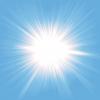Is this something that's commonly known ?
Links found here: http://www.ergo-log....gingertest.html
http://www.ncbi.nlm....pubmed/12508133
Evaluation of androgenic activity of Zingiber officinale and Pentadiplandra brazzeana in male rats. Kamtchouing P, Mbongue Fandio GY, Dimo T, Jatsa HB. Laboratoire de Physiologie Animale, Faculté des Sciences, Université de Yaoundé I, Cameroun.
AIM: Aqueous extracts of Zingiber officinale and Pentadiplandra brazzeana were tested for their possible androgenic activity in male Wistar rats. METHODS: The aqueous extracts of the two plants were gavaged separately to 2 groups of rats at a similar dose of 600 mg middot kg(-1) middot day(-1) for 8 days. At the end of the treatment, the animals were killed and the blood, testis, epididymis, seminal vesicles and prostate were collected for biochemical analysis. RESULTS: The aqueous extract of Z. officinale significantly increased in the relative weight of the testis, the serum testosterone level, testicular cholesterol level and epididymal a-glucosidase activity. The aqueous extract of P. brazzeana significantly increased the weights of the testis, seminal vesicles and prostate. It also significantly increased the serum and testicular testosterone level. The fructose, alpha-glucosidase and cholesterol levels in P. brazzeana-treated rats were increased by 28 %, 35 % and 114 %, respectively. CONCLUSION: The aqueous extracts of both P. brazzeana and Z. officinale have an androgenic activity, which seems to be more potent with P. brazzeana than with Z. officinale.
http://www.bioline.o...rm09002&lang=en
The effects of Ginger on spermatogenesis and sperm parameters of rat
Khaki, Arash; Fathiazad, Fatemeh; Nouri,
Mohammad; Khaki, Amir Afshin; Ozanci, Chelar C; Ghafari-Novin, Marefat
& Hamadeh, Mohammad
Abstract
Background:
Ginger rhizome (Zingiber officinale R., family: Zingiberaceae) is
used medicinally and as a culinary spice.
Objective:
Medicinal use of ginger dates back to ancient China and India.
Ginger and its constituents are stated to have antiemetic,
antithrombotic, antihepatotoxic, anti-inflammatory, stimulant,
cholagogue and antioxidant. It has been used since ancient time as
medicinal and food origins it contain antioxidative and androgenic
activities and have well effect in diseases treatment in more countries
world-wide. As an antioxidant's ginger has a useful effect on
spermatogenesis and sperm parameters.
Materials and Methods:
Wistar male rat (n=30) were allocated into three groups, control
(n=10) and test groups (n=20), that subdivided into groups of 2 that
received ginger rhizome powder (50 and 100mg/kg/day) for 20 consequence
day. Animals were kept in standard conditions. In twentieth day the
testes tissue of Rats in whole groups were removed and sperm was
collected from epididymis and prepared for analysis. Results: Serum
total testosterones significantly increased in experimental group that
has received 100 mg/kg/day Ginger (p<0.05) in comparison to control
group. Besides, the percentage of sperm viability and motility in both
test groups significantly increased (p<0.05) in comparison to control
group, Whereas, LH, FSH hormones, sperm concentration, morphology and
testes weights in both experimental and control group were similar.
Conclusion:
Results revealed that administration of 100 mg/kg/day of ginger
significantly increased sperm percentage, viability, motility and serum
total testosterones. This suggested that ginger may be promising in
enhancing sperm healthy parameters.
Keywords
Ginger rhizome, Sperm,
Spermatogenesis, Rat, Testis, Testosterone
Edited by rwac, 18 October 2009 - 02:14 AM.




















































